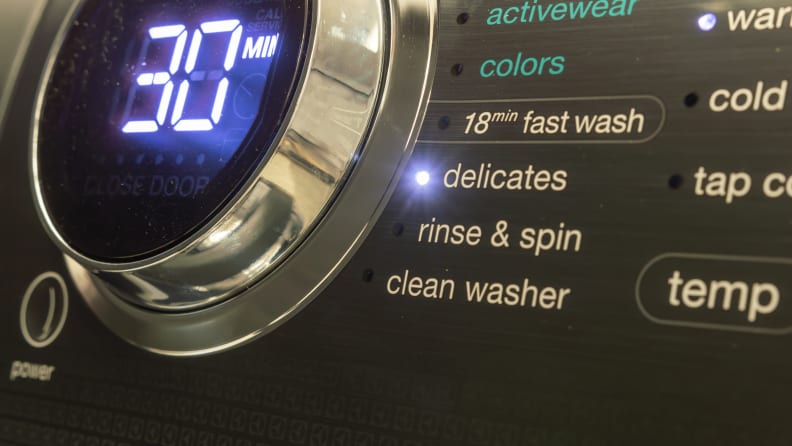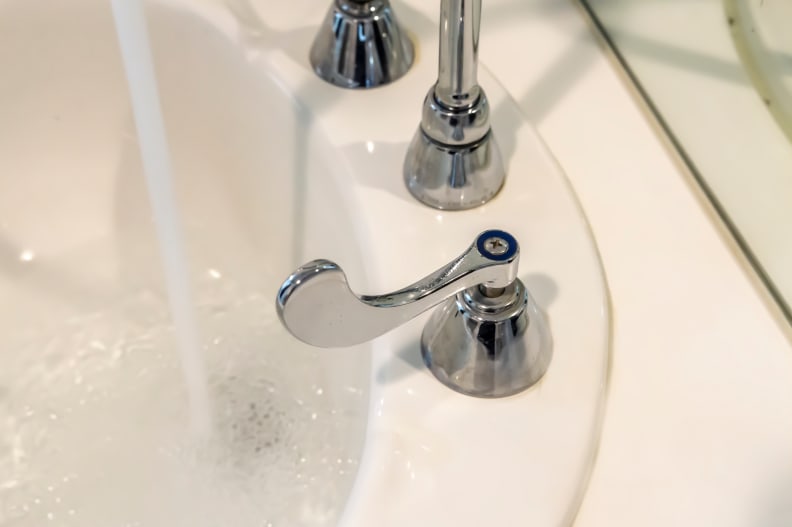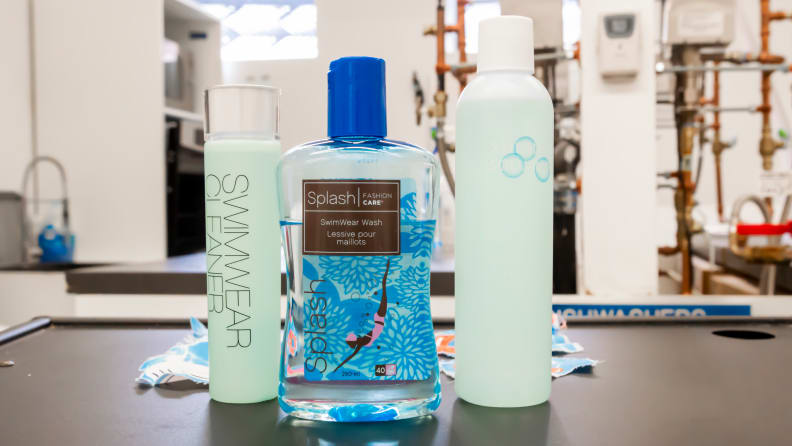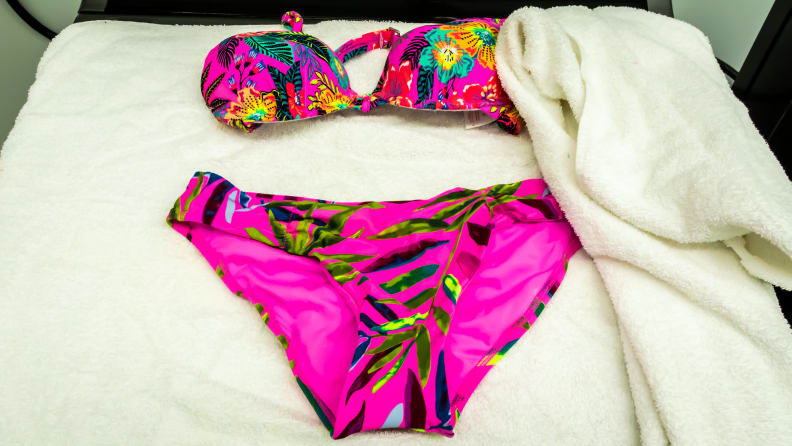Are you washing your bathing suits wrong?
It only takes a few changes to make your swimwear last longer
Products are chosen independently by our editors. Purchases made through our links may earn us a commission.
Summer is upon us! It's time for backyard barbecues, travel, and lounging by the pool. However, if you spend a good amount of time swimming, you might notice that your swimwear tends to go from bright tropical colors to a dull hue towards the end of the season.
The fading comes from a combination of exposure to UV light, reactions to chlorine, and improper washing techniques. So we decided to make our own pool water in our lab, test out a bunch of the most popular swimwear detergents, and give you the skinny on how to care for your swimwear—the right way.
Here's what we learned:
1. If you love it, don't put it in the washing machine

If you have to wash your swimwear in the washing machine, choose the Delicates cycle.
Swimwear can be washed on a Delicates cycle, especially if it is placed in a mesh bag. However, if you want that color to stay bright, season after season, you need to hand wash. Any machine washing will dull the colors and fray the fabric.
2. Keep colors bright by using cold water

The best practice for washing swimwear is by hand in cold water.
Hot water might get rid of the chlorine smell, but it degrades color. Just look it how much duller these swatches taken from a pair swimming trunks look after just four hot-water washes:

After just four washes, the color began to noticeably fade.
Cold water limits this problem, though cold water doesn't deodorize as effectively. If you want to wash in hot water, then you absolutely need a swimwear detergent. Which leads us to...
3. Swimwear detergents do actually work!
Specialized swimwear detergents seem like overkill. Detergent meant to wash just one kind of clothing? Who needs that? But in our tests we showed that they actually work great.

Our experiments found that swimwear detergents do actually work. We got rid of the chlorine smell and reduced color loss by up to 50%.
To test how effective they are, we made pool water in our labs and soaked a pair of bathing suits in them. Then, we took three of the leading swimwear detergents and followed the directions on the back to a T. We washed the suits four times in hot water (to accelerate the color fading process), and the difference was immediately noticeable.
Turns out, Swimwear Cleaner and Splash are great at getting out the smell of chlorine while also keeping your suit's colors bright. Our experiments show that detergents, like Splash, halve the amount of color loss over time. That's perfect if you're a frequent pool swimmer and find yourself washing suits once or twice per week, where even cold water could cause some fading as time goes on.
4. Air dry, but not line dry

To keep color loss and wear down, dry your swimwear in a towel.
High heat and UV light degrade colors so placing your bathing suit in the dryer or on the line is ill advised. Instead, place it instead on a towel to dry overnight.
5. Different suits for different tasks
If your poolside activities don't involve much actual swimming, it'd be better for you to buy a cheaper bathing suit. Those of you that alternate between swimming and sunbathing might want to get two sets of swimwear. Otherwise, you should be prepared to buy a new swimsuit every season as UV light inevitably fades your suit's colors.
How we made the pool water
We added .5 grams of chlorine to 10kg of water–which created a standard 5 parts per million. In addition, we put in a bit of margarine and other detritus. (Now you can see why no one would let us use their pool for our a little experiment). See, the musty-pool smell does not come from the chlorine itself, but from it reacting to body soils.
Margarine instantly gave us that "chlorine smell" you'll find at most indoor pools, and it also adds an extra layer of gunk that swimwear detergents need to be able to remove.
